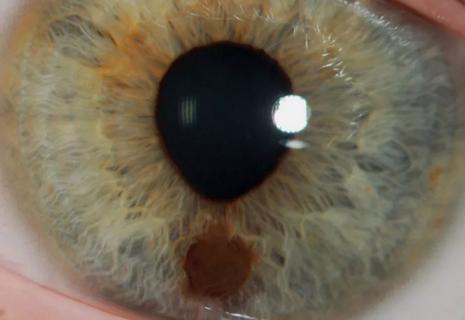The likelihood of melanoma returning varies by stage, but you can take steps to help prevent recurrence by wearing sunscreen and monitoring your moles

If you have had melanoma, you may wonder if it can return.
Advertisement
Cleveland Clinic is a non-profit academic medical center. Advertising on our site helps support our mission. We do not endorse non-Cleveland Clinic products or services. Policy
The answer, unfortunately, is yes — even if your treatment was successful. That’s why your doctor will want to monitor you closely. They may follow up with you every few months, especially in the first few years after your initial treatment.
“Melanoma can recur at any stage,” says oncologist James Isaacs, MD. “It’s a serious disease, but it’s one that we can cure if it’s caught in time.”
Dr. Isaacs outlines what you need to know about recurrent melanoma.
The chances of melanoma coming back depend on its stage.
Those who’ve had melanoma are at greater risk for developing another melanoma. It can return near the original spot or elsewhere on your body.
Some cancer cells may remain inside your body that screening tests can’t detect. If these cells grow into a tumor, it’s known as a recurrence.
Doctors classify melanoma in one of five stages:
Advertisement
The likelihood of recurrence varies by stage. It’s less likely to recur at lower stages, Dr. Isaacs says.
“In general, the recurrence rate increases as the stage advances — even after successful surgery,” he adds.
The stage also affects your prognosis. The lower the stage, the higher the likelihood of curing your melanoma.
“At stage I, more than 90% of patients can be cured,” shares Dr. Isaacs. “As the stage progresses, the likelihood of a cure is less. However, with recent advancements in immunotherapy and targeted therapy for melanoma, even at stage IV, we’re very optimistic that we can cure many patients.”
One exception in the melanoma staging system is that in some cases for stage III melanoma, the risk of recurrence may be quite low.
“This is based on the thickness of the melanoma and the amount of melanoma found in the lymph nodes,” he explains. “Your oncologist can review your pathology report to give you the best estimate of recurrence risk.”
The main key to combating a melanoma recurrence is early detection.
After your treatment, it’s vital to continue to see your dermatologist or physician regularly. They will base the need for follow-ups on your specific case. As time goes by without a relapse, the frequency of visits will gradually decline.
“For patients who had melanoma before, we generally recommend seeing your physician every three to six months,” Dr. Isaacs says. “The higher the stage of melanoma you had, the higher your risk is for relapse.”
He recommends seeing your physician every three months for a year. Then, every four to six months for the next year. After that, every six months up to five years.
“If there is no evidence of another melanoma or disease relapse at that point, continue your follow-up once a year,” he advises.
Here are the best ways to avoid melanoma recurrence:
To spot signs of melanoma, keep the ABCDE guidelines in mind:
Advertisement
In addition to taking steps to prevent melanoma, remember that early detection is key.
“The earlier we find it, the much higher the chances of curing it,” stresses Dr. Isaacs. “This supports the importance of monitoring your skin and screening for abnormal moles that could signal melanoma.”
Advertisement
Learn more about our editorial process.
Advertisement

See where the deadliest skin cancer can develop

It’s a great disinfectant for around your home, but not for your skin

Changes in texture, smell, color and performance are signs it’s time to throw the cosmetic item away

Follow the 4Cs — cooling, cleaning, covering and comforting — to start the healing process

Bathing once a day is the general guidance, but you could also have reasons to soap up twice a day or not at all
There’s not one specific cure-all diet for eczema, but it helps to keep track of what you eat and when you experience symptoms

It’s best to avoid picking at zits, which can damage your skin (though there are ways to minimize the risk)

Both inflammatory conditions have varying triggers and symptoms

Wearing a scarf, adjusting your outdoor activities and following your asthma treatment plan can help limit breathing problems

Your diet in the weeks, days and hours ahead of your race can power you to the finish line

When someone guilt trips you, they’re using emotionally manipulative behavior to try to get you to act a certain way